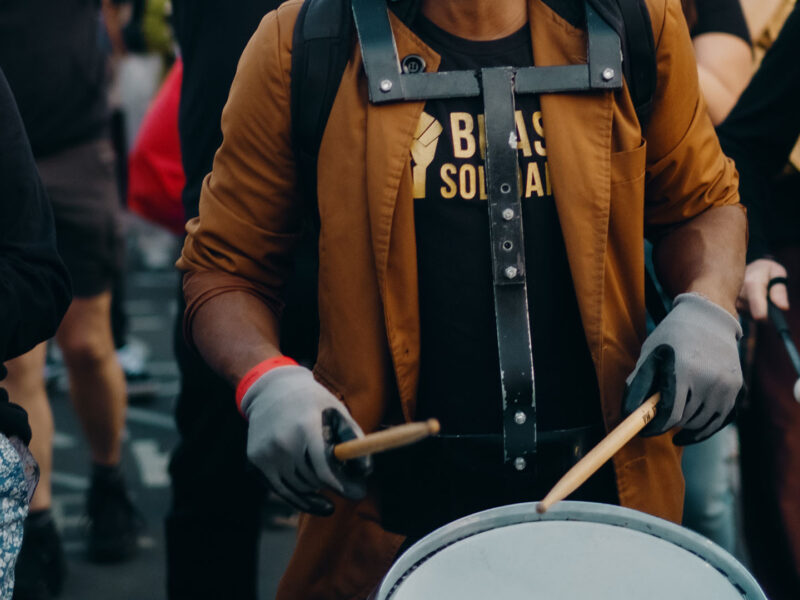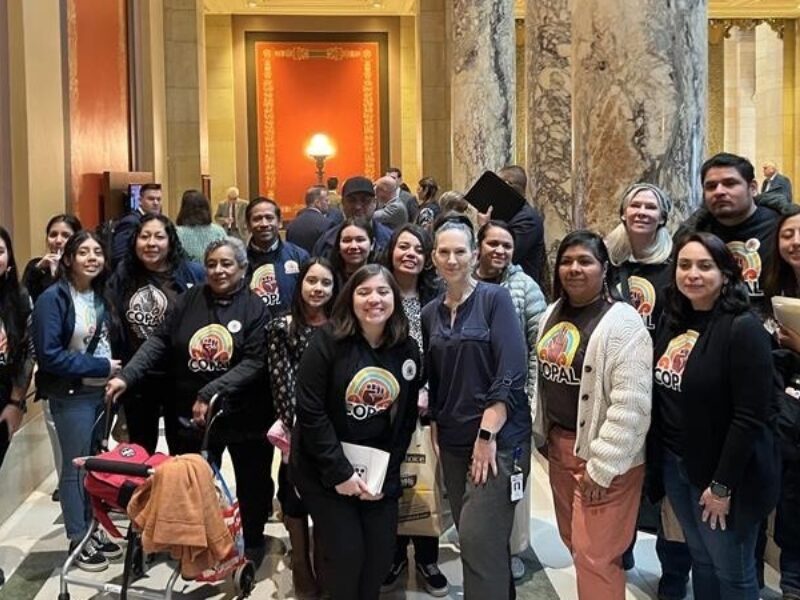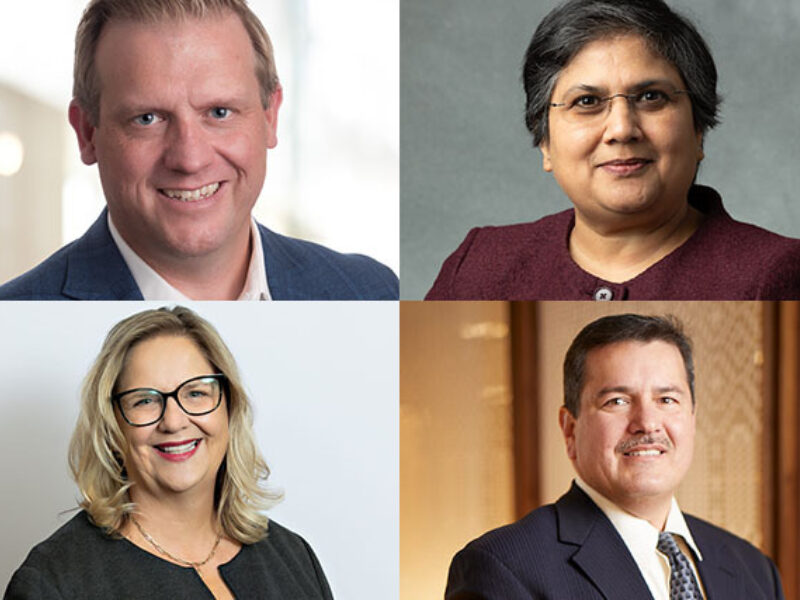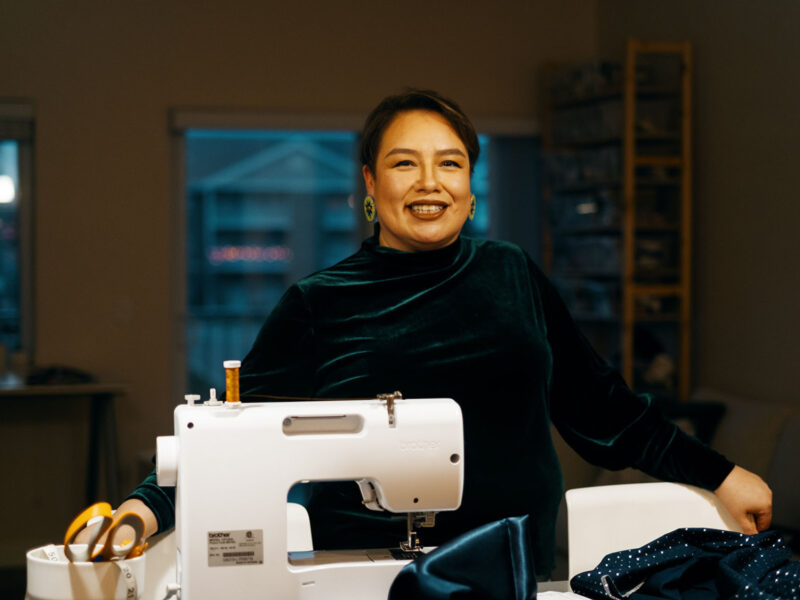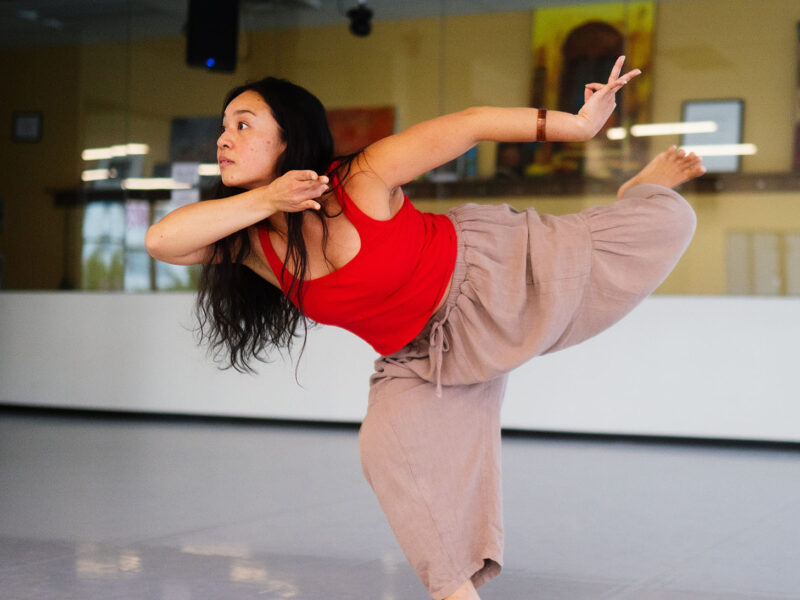Advocating for equity is one of our strategic pillars, and the Foundation weaves equity into everything we do.
One of the strategic pillars at the Saint Paul & Minnesota Foundation is Advocating for Equity. Equity often mean different things to different people, and equity practices can be implemented differently, depending on the context or the organization.
In this Q&A, the Foundation’s former Chief Operating Officer Nadege Souvenir shares some of the ways the Foundation works to ensure that equity is not just a buzzword but a way of operating that extends to every corner of the organization.
Let’s start with the basics. Why is equity important?
Equity is important for a number of reasons that we could get into, but it just actually makes good business sense to consider equity beyond diversity.
Diversity is including teams of various backgrounds, but equity is actually creating the space where the diverse people on those teams have equitable and equal footing, representation, voice and power.
The Foundation has been working on equity for a while. Before I joined, we had a role dedicated to equity, we established an equity framework, and we engaged in staff learning. Like many initial efforts, our energy for equity launched in a big way, but eventually started to dim. Then when Eric [Dr. Eric Jolly, President and CEO] was hired, he revitalized that work for the whole of the organization with things like our informs, forms, benefits approach and how we show up in community.
In the years that followed, we really started using equity as an operational tool — looking at our processes, our relationship with our vendors and even how we approach risk. Our continued work has gotten to this point where we're thinking deeply about not just equity, but how we ensure we are not funding organizations actively promulgating hate.
After the murder of George Floyd we saw organizations focus more on diversity, equity and inclusion work, and as time has gone on their practices don’t quite seem to align with that work. How do you think the Foundation follows through on its commitment to diversity, equity and inclusion?
Part of our reality is that we had already been investing in equity work. George Floyd’s murder was not a catalyst for us; it was a deeply painful reminder that this work is important and ongoing.
After George Floyd's murder, we quietly funded some Black-led organizations focused on mental health and community engagement. We also really thought about how we take care of our own staff. We did all of this because it was aligned with who we are, not as a response to increased attention.
When I think about organizations that are really doing this work, it's in doing the things that don't attract attention.
For example, our CIO Shannon O’Leary incorporates work around equity into what we do in investing. I had already directed the Operations team to think of equity as a tool. When Shannon showed up, her charge had zero to do with equity, but given her personal alignment and interest in equity, and then looking at the rest of the work of the Foundation, it just seemed incomprehensible for her not to do her work as the lead of our Investments team through an equity lens.
“Incorporating equity into the whole of an organization is not the creation of one role or tasking it to an underfunded team. This work requires time, money and power.”
Nadege Souvenir, Chief Operating Officer

How does the Countering Hate event that we support factor into our equity focus?
The Countering Hate event came to us originally as an idea from the Muslim American Society of Minnesota and the Minnesota Council of Churches. They wanted to gather a few philanthropic leaders in a room to discuss recent attacks on faith institutions and philanthropy’s role. We quickly realized that there might be something bigger than just a one time conversation; philanthropy could learn from and with folks working in faith institutions about dealing with hate, white supremacy and the related challenges.
We are now in the event’s fifth year. We bring together foundations from across the state of Minnesota to spend time together, to listen to noted speakers and engage in reflective conversation about how we can combat white supremacy in all that we do.
You’ve mentioned operationalizing our equity work. What are some of the other ways it is operationalized?
One of the ways that we have operationalized equity is in our approach and planning about the new work that we do.
We have historically done this work planning in silos; teams created their work plans for the year and just shared them with other teams. Now, we do that work together. We are exercising the muscle of collaboration, thinking about large workstreams and the relationship to overall Foundation strategies together. There is representation from all of the departments of the Foundation, and each person brings their lens of advocating for equity, inspiring generosity and investing in community-led solutions. This results in more well-considered prioritization of Foundation work and initiatives in a way that we didn't do before.
Increased collaboration doesn't necessarily read directly as operationalizing equity, but it does, because it ensures that no matter the work – whether it is a new grant initiative or an IT systems update – we fully consider the who, what and why of our work and how it aligns with Foundation strategies. There is a diversity of thought in the process leading to a more successful outcome.
What advice would you give to other organizations on incorporating equity into their practices?
Incorporating equity into the whole of an organization is not the creation of one role or tasking it to an underfunded team. This work requires time, money and power.
I think the difference for us and how we've been operationalizing diversity, equity and inclusion is that we’ve given it time by the virtue of the fact that our leadership team has signed on to it. Our Executive Leadership team is fully engaged in this work. We spent a year with a consultant working to challenge ourselves, unpack and create space for areas to improve.
Not only is equity a Foundation strategy and value, but it is a personal one for me. It influences my leadership as Chief Operating Officer. Fair or not, what matters to leadership is generally what gets priority.
What often happens at an organization is one person has to move a ball and the diversity/equity stuff is “extra.” For us, that kind of thinking is unacceptable. If anyone at this Foundation ever said out loud, “I'm too busy to do it the equitable way” they would not get very far before a colleague pointed them right back to our strategic priority of advocating for equity.
A recent Center for Effective Philanthropy Staff Perception Report showed that Foundation staff who identified as Black, Indigenous and People of Color (BIPOC) had higher satisfaction numbers about how their work contributes to the Foundation’s goals, and the extent to which they feel a sense of belonging. That seems contrary to what we hear from other organizations. Why do you think that is the case?
I think that this is evidence that we are actually doing the work, not just paying lip service to it. If you ever want to know if an organization is authentic in its equity work, the people you should talk to are those who have historically been sidelined, such as BIPOC, LGBTQIA+ and disabled communities. These staff have been articulating their needs and asking for measures, efforts and considerations to address their concerns.
For me, it's significant that our BIPOC staff feel a sense of belonging and see themselves in our work; it reflects all the work that we've made over the last few years. I think it is one of the strongest markers of our DEI progress.



